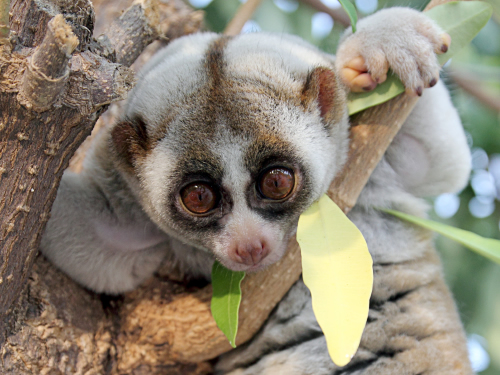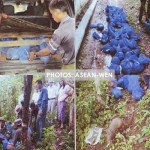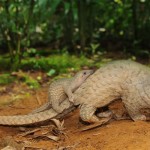
U.S. Secretary of State Hillary Rodham Clinton plans to “elevate” the issue of wildlife trafficking at the upcoming East Asia Summit (EAS) in Phnom Penh, Cambodia.
Speaking at the Association of Southeast Asian National (ASEAN) Ministerial Meeting on September 27th, 2012, at the Waldorf Astoria Hotel in New York City, Secretary Clinton said that while the top three issues on the EAS agenda will be disaster relief, nonproliferation, and maritime security, a fourth issue of wildlife trafficking is likely to be included at the EAS in November.
Finally this year, we hope to focus our EAS partners on the challenge of wildlife trafficking and the related issues of protecting biodiversity and preventing the emergence of pandemic diseases. The illegal trade in protected and endangered species is now estimated between $7- and $10 billion dollars a year. It is increasingly intertwined with other illicit activities that undermine regional security and prosperity, including organized crime. Earlier this month, APEC economies agreed to take steps to stop poachers and the United States is eager to work with our partners in ASEAN as well, developing new initiative, building on the good work of the ASEAN Wildlife Enforcement Network.
Watch the video of U.S. Secretary of State Hillary Rodham Clinton’s remarks at the ASEAN Ministerial Meeting here.
Learn more about the wildlife trafficking crisis in Southeast Asia at:
- ASEAN Wildlife Enforcement Network
- TRAFFIC Southeast Asia
- Education for Nature-Vietnam
- Bornean Sun Bear Conservation Centre
- FREELAND Foundation
This is not the first time that illegal wildlife trade has received attention from U.S. government officials. On May 24th, 2012, Senator John Kerry presided over the U.S. Senate Committee on Foreign Relations Hearing, which examined the global implications of ivory and rhino horn trafficking.
At the U.S. Senate Hearing, testimony regarding the clear connection between global insecurity and a surging ivory and rhino horn trade was given by expert witnesses Dr. Iain Douglas-Hamilton (Founder, Save the Elephants), John Scanlon (Secretary-General of CITES), and Tom Cardamone (Managing Director, Global Financial Integrity).
Image: iStockphoto.com




